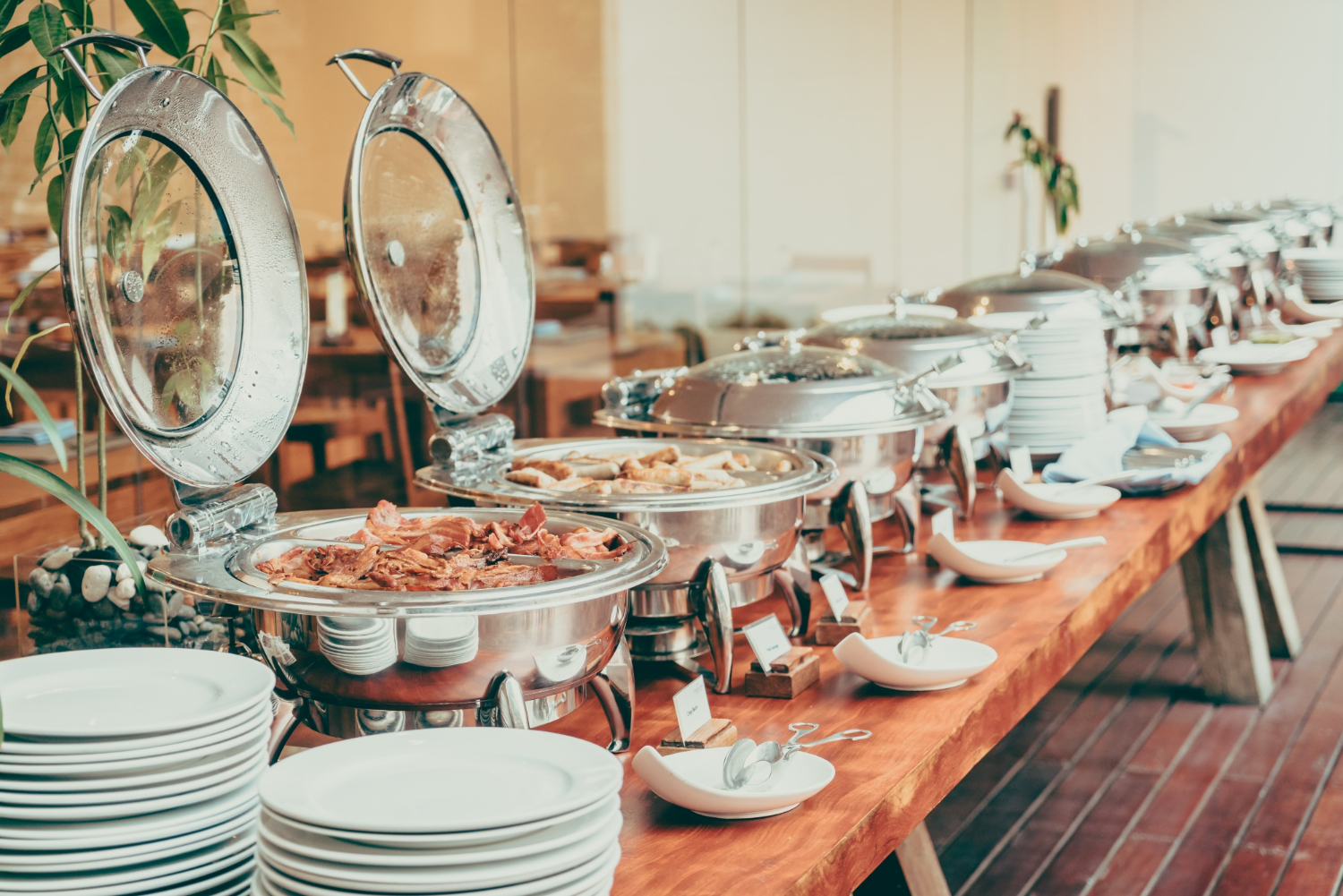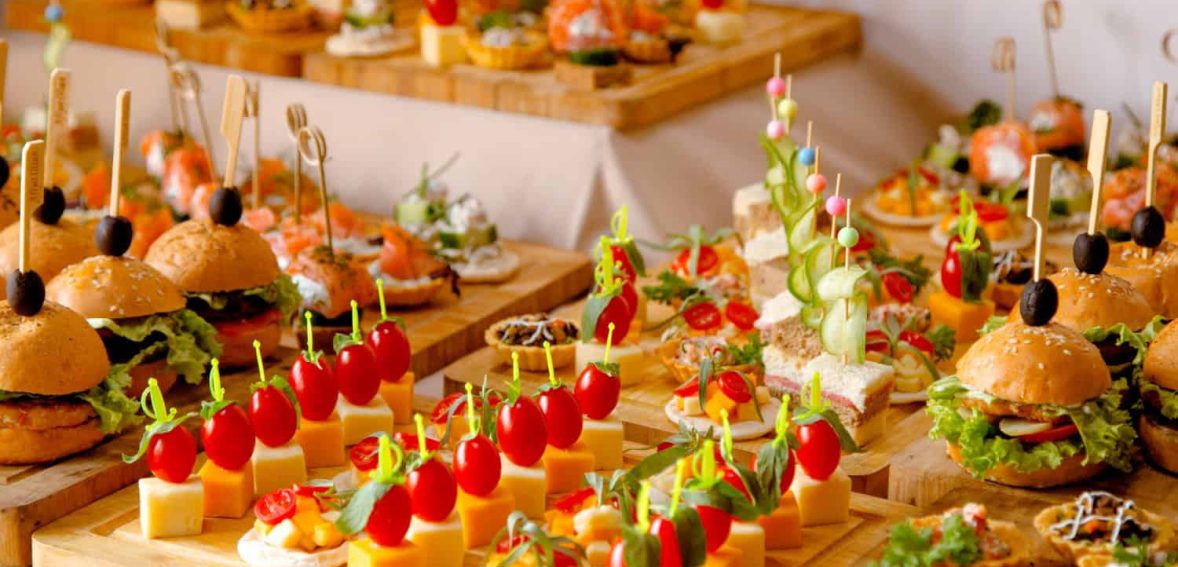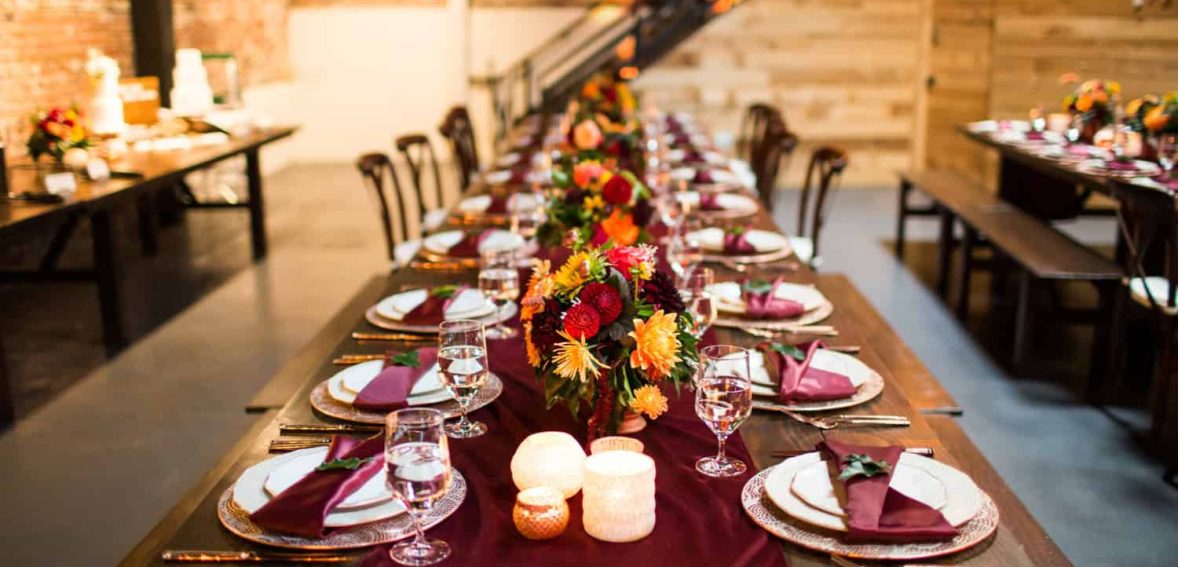
By Jermaine Thomas July 15, 2025
Catering is a business of details. From timing and menus to dietary preferences and portion sizes, everything needs to align perfectly to deliver a seamless event. But behind the scenes, another layer determines whether a catering business thrives or struggles; how well it manages its supply chain. In particular, the ability to form strong vendor relationships and secure better pricing on bulk orders can be a game-changer.
For catering professionals, purchasing decisions go beyond what’s on the menu. It involves navigating seasonal availability, transportation logistics, packaging options, and payment terms. A large part of this puzzle revolves around sourcing bulk catering supplies and building long-term vendor partnerships that reward consistency and trust. The smarter you are with vendors, the better your margins, service speed, and overall event quality.
Why Vendor Relationships Matter More Than Ever
As demand increases; especially during peak seasons or in fast-growing markets; the value of a good vendor partnership becomes more apparent. No matter how good your kitchen staff or planning team is, you’re only as strong as your suppliers.
The Consequences of a Missed Delivery
Imagine planning a wedding or corporate event only to find out your poultry shipment is delayed or your linens didn’t arrive on time. These delays impact not just that one event but your reputation. Vendors who understand your urgency and put your needs first become essential to your business.
Catering companies that work with the same set of suppliers tend to have fewer surprises. Over time those suppliers learn your likes, standards and schedule. That relationship often means faster service, better product recommendations and flexible arrangements in an emergency.
Repeat Business Means Better Terms
Vendor relationships like any partnership improve over time. If you buy your wholesale food for events from the same supplier every time, they’re more likely to give you deals others don’t get. This includes volume discounts, early access to limited ingredients or preferred delivery slots during peak seasons. Regular communication and on time payments will only strengthen those ties and make it easier to ask for special terms or requests.

Bulk purchasing is not just about stocking up. It’s a strategic choice that can cut costs, reduce delivery frequency, and improve operational efficiency. For caterers who manage events weekly or even daily, it’s often the smartest route.
Cost Savings That Add Up
Ordering in large quantities often unlocks catering vendor discounts that aren’t available for smaller orders. Vendors prefer customers who buy more at once because it reduces their handling and delivery costs. These savings are typically passed on to you in the form of lower per-unit prices. Over the course of a month or a busy season, these savings can significantly increase your profit margins. If you’re spending less on the same high-quality ingredients and supplies, your pricing becomes more competitive without compromising quality.
Predictability and Planning
With bulk orders, you’re not scrambling every week to place last-minute requests. Instead, you can plan in advance, receive fewer deliveries, and spend less time coordinating with suppliers. This predictability is useful not just for logistics but also for menu planning and staffing. Ordering bulk quantities of wholesale food for events allows you to standardize recipes and ensure consistency across multiple events. It simplifies training, reduces food waste, and ensures you always have the essentials on hand.
Navigating the Risks of Bulk Purchasing
While bulk ordering has its advantages, it also has its challenges. These need to be managed to avoid spoilage, storage issues or cash flow problems.
Storage and Shelf Life
Before you commit to bulk purchases, you need to assess your storage capacity. Do you have enough refrigeration, dry storage or freezer space? Are your storage areas climate controlled and food safety compliant? Even the best deals on bulk catering supplies won’t help if the items go bad before you can use them. Tracking expiration dates and rotating stock becomes critical in a bulk purchasing environment.
Cash Flow and Budgeting
Buying in bulk means paying more upfront, even if the per unit cost is lower. Caterers need to make sure they have the financial flexibility to make these investments without compromising their ability to pay payroll, marketing or utility bills. Some vendors offer staggered payments or credit terms but these need to be negotiated carefully. Always factor in payment terms and match them against your event calendar and incoming revenue.
How to Negotiate Better Vendor Terms
Strong vendor relationships don’t develop overnight. They are built through consistent communication, transparency, and mutual benefit. If you’re looking to get more from your vendors, start by approaching them as long-term collaborators, not just suppliers.
Be Transparent About Your Needs
Vendors can’t support your growth if they don’t understand it. Share your event schedule, volume projections, and seasonal patterns. Let them know which products you use most and when your busiest months are. With this information, vendors can suggest more efficient supply plans or offer advance booking for high-demand items. They might even hold inventory on your behalf or offer packaging alternatives that better suit your workflow.
Ask for Discounts, But Offer Value in Return
Discounts aren’t guaranteed, but vendors are more likely to accommodate them when they see value. That could mean committing to minimum monthly orders, providing fast payment, or even promoting their brand on your website or menus. When negotiating catering vendor discounts, focus on long-term cooperation rather than one-time wins. Vendors want loyal clients just as much as you want reliable suppliers. Framing the relationship as a partnership often results in better terms and consistent service.
Smart Sourcing for Wholesale Food and Supplies
Not all vendors are created equal, and not all offer the same level of service. Finding the right supplier for your wholesale food for events takes some research, testing, and relationship building.
Local vs. National Suppliers
Local vendors often offer fresher products, faster delivery, and a better understanding of regional tastes. They may also be more flexible with orders or responsive to last-minute changes. On the other hand, national suppliers can offer lower prices due to their scale and wider product variety. A balanced approach may work best. Use local vendors for perishables and specialty items while sourcing dry goods and disposables from national distributors. This gives you both flexibility and cost control.
Quality and Consistency
A good price means nothing if the quality doesn’t meet your standards. Make sure to test products before committing to large orders. Pay attention to freshness, taste, packaging, and shelf life. Consistency is key in catering, especially if you’re known for a signature dish or style. Over time, maintaining a preferred list of approved suppliers ensures you know exactly what you’re getting, every single time.
Streamlining the Supply Chain
Ordering, receiving and managing bulk catering supplies makes all the difference during peak seasons. When every hour counts, a smooth supply chain is your best friend.
Automating Orders and Inventory
Many catering businesses now use software to track inventory, forecast demand and automate reordering. These tools will alert you when stock is low or when it’s time to restock based on upcoming events. Automated systems reduce human error and make managing vendors a breeze. They can also tell you which vendors are most reliable and which products are used most.
Communication and Scheduling
Clear delivery schedules reduce confusion and make sure your kitchen never gets overwhelmed. Communicate any special requests ahead of time, like early morning deliveries, refrigerated transport or specific quantities per package. Make it easy for your vendors to serve you well by setting expectations early and keeping the lines of communication open.

Measuring Vendor Performance and Value
Relationships are a two-way street. Just as vendors evaluate you as a client, you should regularly assess their performance and contribution to your business.
What to Track
Some metrics to consider include order accuracy, delivery timeliness, product quality, pricing consistency, and responsiveness. Over time, patterns will emerge. Some vendors will go above and beyond, while others may require closer supervision. Tracking these details helps you make better decisions about renewals, contract negotiations, or when it might be time to find new partners.
Building Feedback Loops
Share constructive feedback with your vendors. Let them know when a product worked well or when a delivery fell short. Vendors who take feedback seriously and improve their service show they are invested in your success. These conversations not only resolve issues but also deepen trust. Vendors appreciate transparency and are often more willing to offer perks or improve service when communication is strong.
Preparing for Seasonal Demand
Catering businesses often face seasonal spikes around holidays, wedding seasons, and corporate event cycles. Bulk ordering becomes even more important during these times to ensure uninterrupted service.
Planning Ahead
Use historical data to forecast your busiest periods. Share these forecasts with your vendors early so they can plan their own inventory and logistics. Pre-booking high-demand items or negotiating early access can help you avoid shortages and price hikes.
Backup Plans Matter
Even the best suppliers can face disruptions. Always have a backup vendor for your key wholesale food for events and critical supplies. Establishing relationships in advance ensures you won’t be left scrambling during crunch time.
Final Thoughts
Catering success relies on quality, timing, and trust; and strong vendor relationships support all three. Smart sourcing, bulk orders, and clear communication turn suppliers into strategic partners. Behind-the-scenes efforts like negotiating deals and managing supplies enable smooth service and standout events. It’s not just cooking; it’s collaboration that drives success.